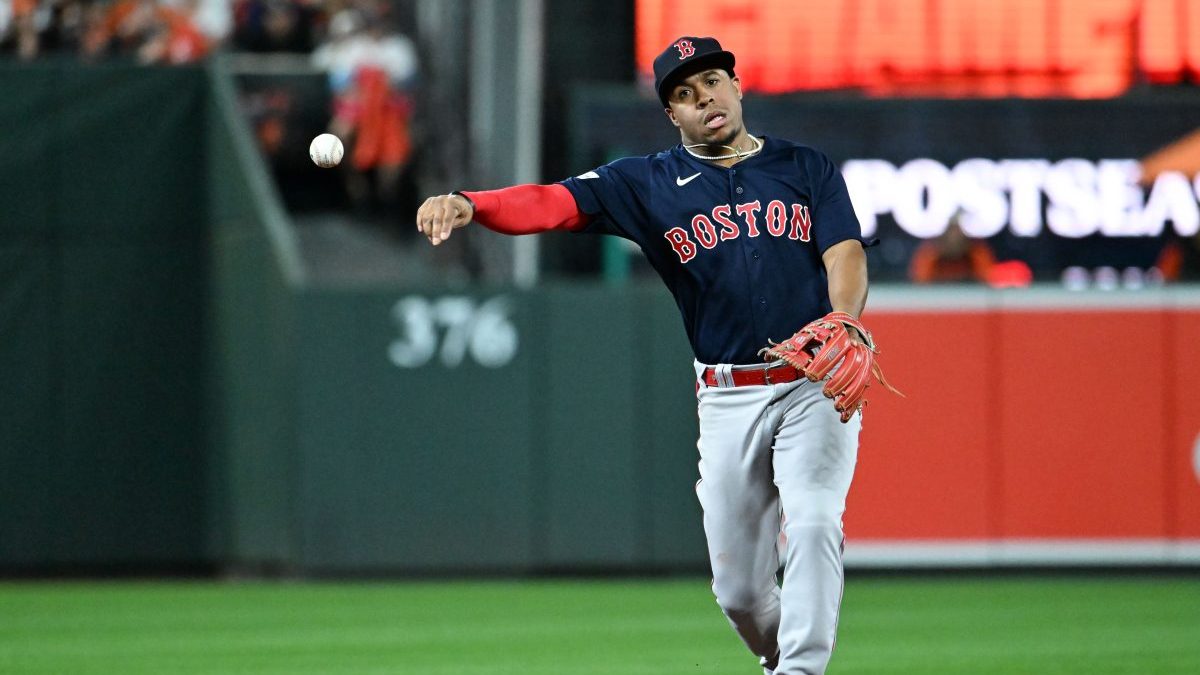For two decades, no one questioned the American League East's place as baseball's toughest division.
Alternately described as "rugged," "brutal," or "loaded," the East annually hosted multiple World Series contenders. For most of that time, the Red Sox and Yankees provided a 1-2 punch worthy of Ali-Frazier, but first the Rays and then more recently the Orioles joined them. Even the Blue Jays, nobody's idea of a dynasty, have reached the playoffs five times in the last 10 years. That's more than the Phillies, Rangers, and Padres, to name three.
But times are changing. There's an opportunity for the Red Sox, because the East is no longer quite so beastly.
In fact, were we to rank the divisions today, the NL East would probably come out on top thanks to the holy war being waged by the Phillies, Braves, and Mets, and the NL West might place second, thanks to the rivalry between the Dodgers and Padres, as well as the lurking Diamondbacks and Giants. Over in the American League, the Central of all places appears ascendant behind Tigers Cy Young Award winner Tarik Skubal and Royals MVP candidate Bobby Witt Jr.
Meanwhile, the AL East is shifting and resettling while losing some prominent pieces. That starts with Juan Soto, who took his Hall of Fame resume from the Bronx to Flushing to sign a $765 million contract with the Mets. Beyond shifting New York's intricate balance of power, Soto's departure significantly weakens the Yankees, who relied on the combo of Soto and MVP Aaron Judge to power their offense.
As things stand now, New York reverts back to an attack featuring the oft-injured Giancarlo Stanton as its second-best hitter. Yankees fans don't even want to know who comes next, especially with Gleyber Torres expected to depart in free agency. The third-biggest bat on the roster belongs to … Alex Verdugo? Austin Wells? Anthony Volpe? Murderer's Row they ain't.
The Yankees have added free agent left-hander Max Fried and almost certainly will strike for another big bat, but minus Soto, they'll be hard-pressed to match last year's 94 wins.
MORE RED SOX COVERAGE
Then there are the Orioles. Blessed with baseball's best farm system and a new owner in David Rubenstein who is reportedly willing to spend, they are curiously bypassing an opportunity to build the American League's version of the Dodgers. Instead of using the flexibility afforded by their cheap young talent to target superstars like Soto, it sure looks like they'll let ace Corbin Burnes walk, alongside 40-homer outfielder Anthony Santander.
They've so far replaced those two with 35-year-old Japanese right-hander Tomoyuki Sugano and old friend Tyler O'Neill, whom the Red Sox chose not to retain. Those are two significant downgrades, and it makes you wonder what GM Mike Elias thinks he's building.
Are the O's going to remain a small-market product and bypass an entire avenue of improvement, or will they expand their worldview? It sure looks like the former, which is a gift to everyone else.
As for the Blue Jays, they're nearing the end of the Great Young Core that wasn't, with Vladimir Guerrero Jr. and Bo Bichette approaching free agency and attempts to sign either Shohei Ohtani or Soto coming up short. They could soon embark on a rebuild, which is pretty much a permanent state of being for the Rays. It turns out Tampa does have its limits, and losing All-Star shortstop Wander Franco to legal troubles in his native Dominican may have been the tipping point.
That brings us back to the Red Sox. The East looks far more weakened than we would've guessed even a year ago, when the Yankees added Soto, the Orioles were coming off a 100-win season, the Rays had won 99 games, and the Blue Jays had just snuck into the third wild card.
Boston has already added left-hander Garrett Crochet in a blockbuster with the White Sox, but Craig Breslow's work is nowhere near done. The Red Sox need another starter, another reliever, and a legitimate right-handed bat. They have the money to sign Burnes, third baseman Alex Bregman, and outfielder Teoscar Hernández if they want to get crazy; at the very least, they should end the winter with one of them.
Assuming they start to see some production from their vaunted farm system, they could conceivably boast a young core in the next couple of years that rivals Baltimore's. Instead of waiting around for it, though, they should strike this winter, because their once-loaded division is vulnerable.




